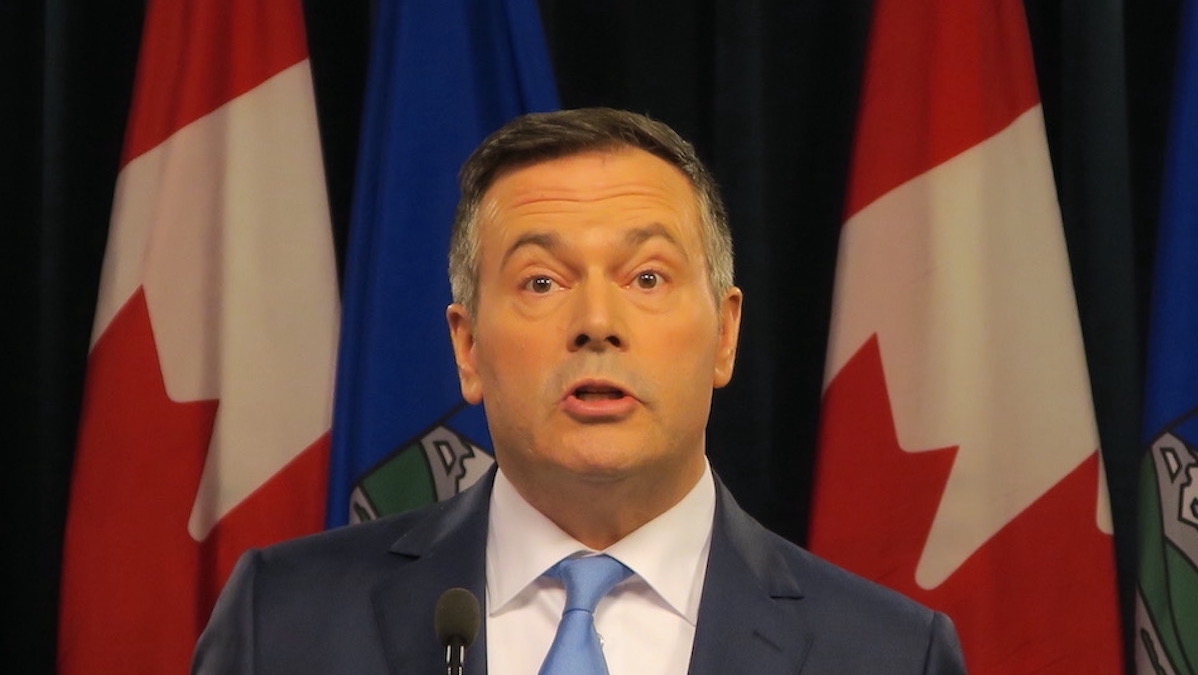It’s probably not very helpful to the United Conservative Party effort to hang onto power by its fingernails that party founder and former Premier Jason Kenney found himself back in the news — his effort to mount a novel Hyperlink Defence against a defamation lawsuit by five environmental organizations is as much of a flop as his “Public Inquiry into Anti-Alberta Energy Campaigns” itself.
No, you can’t pretend you didn’t identify someone by not naming them in your remarks but providing hyperlinks to web pages that identify them, Madam Justice Avril Inglis of the Alberta Court of King’s Bench said in her ruling.
West Coast Environmental Law, the Dogwood Initiative, Stand.earth, Environmental Defence Canada, and the Western Canada Wilderness Committee sued Kenney for defamation in the spring of 2022 for remarks he made about the findings of the so-called public inquiry, which issued a report without a single public hearing.
Inquiry commissioner Steve Allen was extremely careful about what he said about the environmental groups in his report, finding no wrongdoing by any of them, which effectively meant the inquiry was a dud that failed to deliver on Kenney’s political promise to take the fight to critics of oilsands development.
But in their statement of claim, the five plaintiff organizations argued that Kenney himself deliberately misrepresented the findings of Allan’s report in social media posts with the intention of defaming them when he said “foreign-funded misinformation campaigns to landlock Alberta resources caused untold hardship for thousands of energy workers and their families.” He went on to claim that the report “shines a light on these co-ordinated efforts to harm our province.”
In his statement of defence, filed on March 9, 2022, Kenney advanced the novel argument that by not specifically naming the groups he attacked in his social media comments about the findings of the inquiry, which his government initiated, he therefore didn’t identify them.
“The Facebook Post and the Tweet do not mention any of the Plaintiffs, nor do they link to the Web Page or the Key Findings Document,” said the statement of defence.
Asked about it by reporters the next day, Kenney huffed: “Obviously, we’re not going to apologize. We’re simply telling the truth about what they’ve done.”
Well, it turns out the Hyperlink Defence is novel because it’s no defence.
“There are no uncertainties in the facts or the law in this matter,” Justice Inglis wrote in her decision. Since it was perfectly clear who Kenney was talking about, she said, “the protections of defamation law cannot be avoided simply by using embedded links instead of paragraph returns.”
Sometimes you have to get a judge to confirm the obvious, and Justice Inglis has obliged.
This is not the end of the matter, of course. The five plaintiff organizations have not proved their case that Kenney defamed them. They have just established that he can’t use the Hyperlink Defence.
“He took the findings of the inquiry and decided they didn’t meet his needs and just reinterpreted them and made stuff up,” Environmental Defence executive director Tim Gray told CBC News for a May 25 report.
Kenney will now have to defend his remarks in court.
The organizations are seeking $15,000 each in actual damages and $500,000 in punitive damages from Kenney, “to dissuade him and other Canadian public officials from using the power of their office to bully their critics.”




